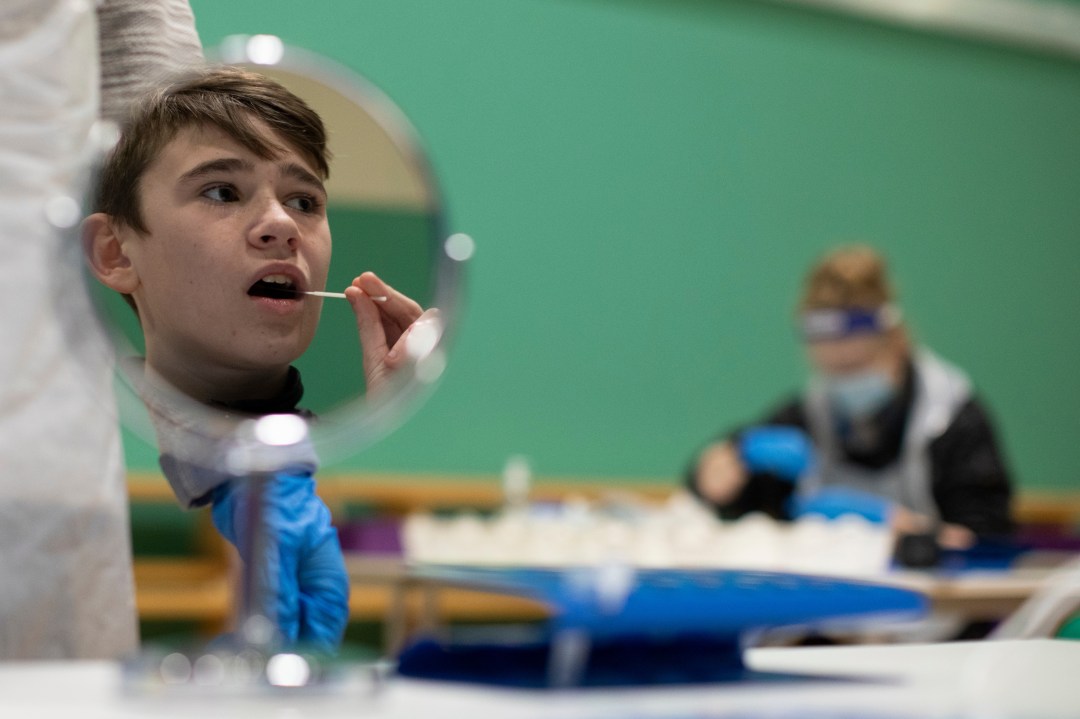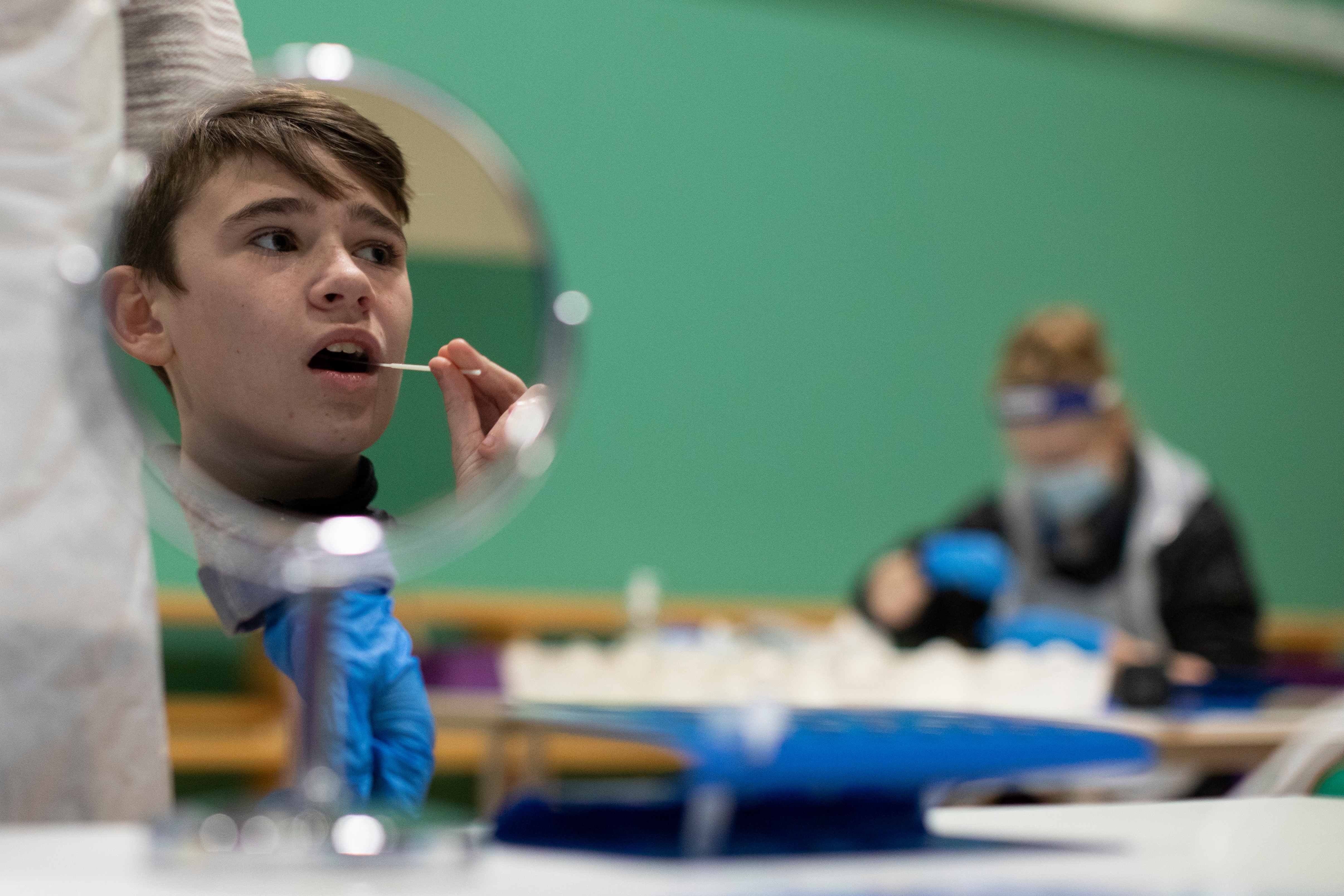Will the return of schools reverse, or dramatically slow, the sharp downwards trend in new Covid-19 infections, which is currently falling at more than 30 per cent a week? No one knows for sure, but it seems unlikely that the mass return of schools today will not have some effect on infections in England, especially given that it involves a section of the population that has not been vaccinated.
While few children suffer serious symptoms of Covid-19, they can carry the disease — older children, especially. For that reason, a return of unvaccinated children to school is likely to have a greater effect on raw infection numbers than, say, a return of vaccinated over-70s to bowls clubs and whist drives.
Yet if there is a slowdown in the decline of new cases, or even an increase, how much of it will be real and how much of it created by extra testing? From today, 3.4 million secondary school children and 440,000 teachers in all kinds of schools are going to be routinely tested twice a week. In other words, nearly four million people in England who previously would only have been tested if they developed symptoms and had taken the trouble to contact NHS Test and Trace will in future be tested as a matter of course.
Given the steep decline in infection numbers at the moment, it is possible that this effect won’t register all that much. But the government needs to be prepared for an upwards blip in new infections and to be able to explain how much of that is down to a genuine increase and how much of it is a statistical quirk created by extra testing. If it does not do this, it risks having to deal with a panic reaction, leading to demands that schools be closed once more. We know very well from past behaviour that some teaching unions will lose no opportunity to demand that children be sent home.
As I wrote here several weeks ago, a review of the evidence from 17 countries by the European Centre for Disease Prevention and Control concluded that schools had not played an especially important part in the early-stage growth of Covid-19’s second wave in Europe last autumn. The return of schools happened to coincide with events with a much larger effect, such as people returning from holiday and students taking up places at university.
However, you cannot ramp up testing without detecting cases that would have previously gone undetected. The government needs to be aware of the likely result of its policy of asking children and teachers to test themselves twice a week — and not let it be thrown off-course








Comments